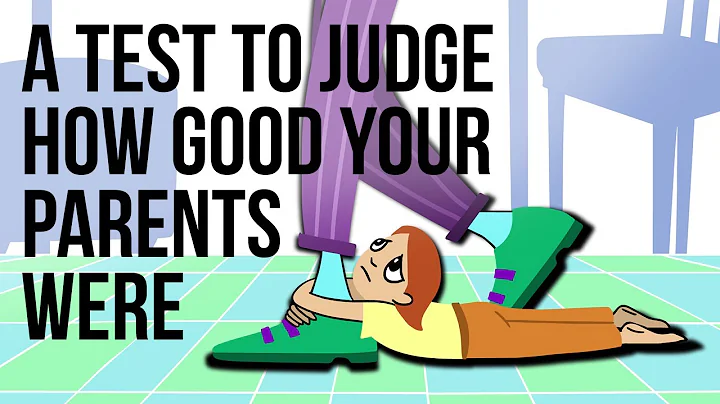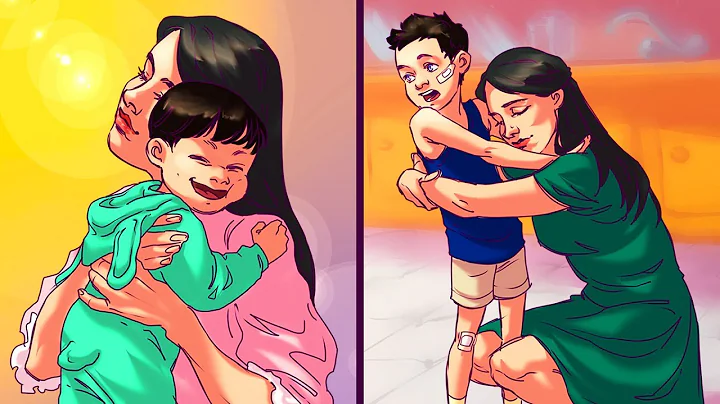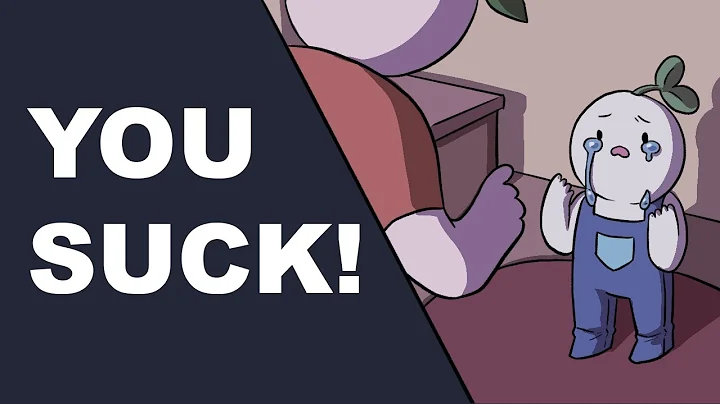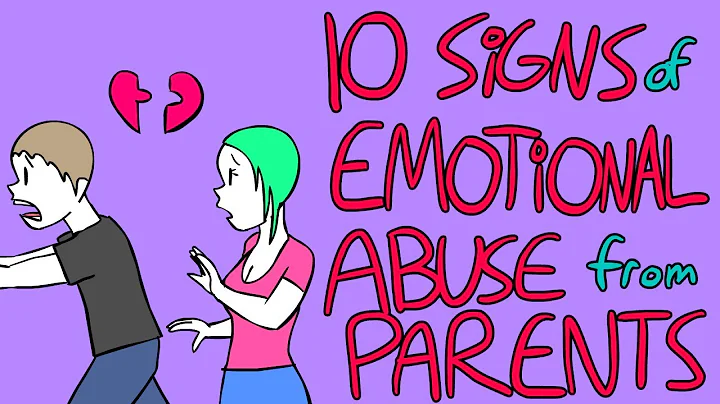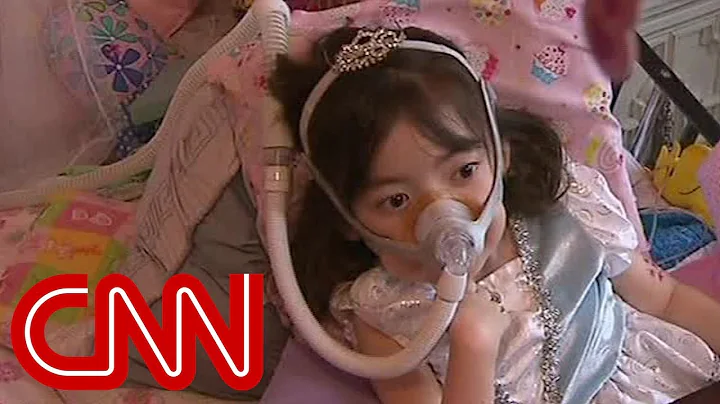Highlights of this article :
When seeing good parenting content, parents may have two moods. One is regretful and blames oneself for not seeing it sooner; the other is thankful and feels that one is lucky to have seen it in time. The reason why the mood is different is that children are always growing. On the one hand, once the critical period is missed, some abilities will need to be made up for or cultivated with extra efforts later (not necessarily possible). On the other hand, because children cannot understand the development patterns and characteristics of children, It has caused some negative effects: such as children losing interest in learning and so on.
So, how to seize the critical period of children’s growth for early education? Today, combined with a scientific parenting book (which can also be said to be a "must-have book for preschoolers"), I will clarify 3 common misunderstandings in early education to help you cultivate your children's lifelong advantages.
At the end of the article is Tongxing’s latest charity book donation event. Welcome to forward or participate , so that more families can be inspired and empowered by scientific education concepts and grow up without anxiety.
The National Health and Medical Commission once issued an announcement stating that in the entire life cycle, investment in children’s early education has the highest input-output ratio of human capital, and the return on investment exceeds 1:7. Many countries have also recognized the high return rate of early education to society. In OECD (OECD) countries, early childhood education plays an increasingly important role in the education system. Each country has established a variety of institutions and funding systems to promote the development of early childhood education.
Putting aside the arguments of health economics , from the perspective of personal development, early education is also very important. Cognitive neuroscientists have shown that preschoolers' early life experiences influence their brain development. 0-7 years old includes multiple critical periods for children's development, such as the critical period for language, the critical period for order, the critical period for movement, the critical period for writing, the critical period for social norms, etc. By the time a child reaches six or seven years old, nearly 90% of his brain development has been completed. Therefore, during the period of 0-7 years old, if someone acts as an "early learning partner" beside the child, accompanying the child in high-quality early education activities (such as playing outdoors, exercising, discussing, reading, playing musical instruments, etc. ), then it will be beneficial to the development of the child throughout his life.

In fact, today’s parents have long recognized the importance of early education (it can be said that they attach unprecedented importance to it). The proliferation of early education centers and various enlightenment institutions can prove this. Every mother should also follow many big V parenting blogs. Lord, I have collected and learned many novel theories and parenting tools, and bought many dazzling toys... But as we master more information, our parenting anxiety is increasing day by day.
I heard that the neighbor’s children can recognize hundreds of words, but my own child only knows a few words;
The mother’s child in the group can count from 1 to 100, but her own child can only count to 20?
A friend’s child has taken several classes, and his daily schedule is full...
The pace of adult life is getting faster and faster, and parents have gradually formed a mentality of "pushing their children to master it early" In this parenting atmosphere, even those parents who don’t want their children to join this accelerating growth trend in advance are inevitably anxious and worried that if they don’t let their children learn more early, If you learn a little, your children will fall behind. More people will be anxious to hear other people's study skills, learn how others plan their studies for the day, and copy their homework. As a result, the collective will become more anxious.
The first few years of children's brain development are very important, but it does not mean that the more you learn and the earlier you learn, the better. If the learning experience is not accompanied by understanding, the difficulty of learning will increase . The difficulty of learning will increase. Count on children Face the difficulties? However, we have learned the idiom "pull seedlings to encourage growth" in elementary school. "Learning many skills in advance" may bring short-term results, but it may also stifle children's interest in learning and self-motivation, which will really be a huge loss. In fact, for thousands of years, children have been able to learn independently with their own curiosity and a little help from adults, and they will not lose this "ability" today. We should cultivate children's ability to learn independently, not let them learn independently. Children master many skills in advance.
Early childhood education is a highly professional matter. Many of the widely circulated teaching methods and educational experiences may not apply to your children? If it is not possible to learn early, then at what stage should early education be carried out, so that it can maximize the development of children's potential, make parents relaxed and children learn happily? If we understand the rules and characteristics of children's development and some underlying logic, I believe these problems will be easily solved. Parents can reduce the number of "copying" other people's methods and avoid many misunderstandings. For example, the following three early education misunderstandings are taken for granted by many people and are often used in parenting life, but they cannot withstand scientific testing.
Early childhood education misunderstanding 1:
Thinking that counting is easy for children
Parents always suspect that their children do not have math skills: parents with 2 to 3-year-old children always count out of order, skipping and counting randomly. , unable to count one number continuously; some parents reported that their children repeatedly counted a number several times; some children had to start counting from 1 every time, and they counted very slowly.
Some time ago, Teacher Jing Fang and Dr. Zhang Xinwei had a live broadcast on mathematics. After reading it, many people realize that it turns out that it is as difficult for children to learn decimal counting as it is for adults to learn hexadecimal and and octal . More specifically, in order for children to learn to count, they need to understand at least four meanings of numbers, namely numbers as sounds, symbols, quantities, and sequences.
The number of sounds is the number we hear in our ears and spoken verbally. Many children can pronounce 1234567, but they only remember the phonetic sequence and do not know what they are pronouncing. The number 1234567 they say is the same as saying "ABCDEFG" or "two orioles singing green willows". Just because they can read and recite numbers does not mean they can count. The number of the
symbol is the Arabic numeral we see. Children learning Arabic numerals are just like learning to read letters. They must match the symbols of the numbers to the sounds of the numbers one by one, and firmly remember the appearance of the symbols.

The number of quantity refers to the actual correspondence of a number to the quantity of a physical object. Children will come into contact with many real objects in life. Seeing two apples, they will know that the apples are round, red, and sweet, but it is difficult to connect the apples with the abstract 2. When a child can realize that two apples can be represented by 2, and knows that the common denominator between two apples and two days is 2, he can understand the concept of quantity 2.
The sequential number refers to a series of numbers arranged by size. When children understand the size of numbers and can compare and arrange them, they will have a sense of the order of numbers.
For children, learning to count means comprehensively understanding numbers as sounds, symbols, quantities and sequences. Only when children can unify these four levels of meaning can they truly understand the abstract concept of numbers. So counting is not easy for children.
Early education misunderstanding 2:
believes that the focus of science education is to teach children a lot of scientific knowledge
When it comes to science education, some parents think that giving children a lot of scientific knowledge allows them to remember many concepts, formulas, symbols and principles. That’s what science education is all about (seeing this, many parents must think they don’t have this idea, but in fact, we often struggle with why our children can’t remember certain concepts? You might as well try to recall it). Physicist Feynman once said that there is a big difference between knowing a concept and truly understanding it. Likewise, knowing scientific knowledge is not the same as truly understanding science.
Dr. Wang Liming is a professor at the Institute of Life Sciences of Zhejiang University and the early founder of Tongxing Academy. He believes that scientific education includes at least four progressive connotations: skills, knowledge, methodology and values.
teaches children how to operate iPads, how to use software, how to complete tasks according to procedures, etc., which are all scientific education at the skill level. He believes that skills are the least necessary to learn. Because with the iterative upgrading of technological products, related skill training may soon become useless skill points. For example, the Wubi input method, which was once popular and regarded as an advanced skill, seems outdated today.
The second connotation of scientific education is the learning of scientific knowledge. Compared with skills, scientific knowledge updates slowly and will not become outdated quickly. Although learning scientific knowledge is important, it is not the core of science education. Because as scientific research results are updated, some scientific knowledge will be corrected and modified. The so-called correct knowledge we teach our children today may become wrong knowledge thousands of years later. For example, the theory of and nine planets in the solar system was correct in the past, but it is a wrong theory today.
So, what is the core of science education?
Wang Liming believes that the core is to learn scientific methodology. In other words, teaches children to think with scientific logic and verify with scientific methods, which is the most important part of scientific education . Scientific knowledge only teaches children "what", while scientific methodology will teach children to go deep into the "why" level, inspiring children to observe phenomena, ask questions, verify conjectures, and summarize conclusions. Even if such children learn wrong knowledge for a while, they will be guided by curiosity and methodology to explore and approach the truth.
The fourth connotation of scientific education is to establish correct scientific values. This layer is also very important. When a child has scientific values, he will believe that he and the objective world in which he lives can be known, understood and changed. When encountering objective phenomena that are difficult to explain, he will not simply use mysticism and conspiracy theories to explain them, but will study and verify them step by step based on scientific methodology.
In general, providing children with scientific education is not just as simple as teaching children scientific knowledge. Compared with imparting skills and knowledge, will be more important to teach children scientific methodology and scientific values.
Early education misunderstanding 3:
I think that listening to a lot of audio for children can help children learn languages
When children are very young, many parents will play knowledge audio and TV programs to their children, saying that this is inputting knowledge to their children. , can help children learn the language well. Some kindergartens have also set up multimedia classrooms, and English cartoons are often played to children, saying that this is to sharpen their ears.
It is undeniable that exposure to a large number of language materials is indeed the basis for language input. Only with certain corpus input can children produce language output. But what we often overlook is that not all materials are suitable for children.
Many audio and video programs contain a large amount of complex background information.If there is no certain knowledge foundation, it will be very difficult for children to understand. No matter how hard they listen, they will not be able to absorb much, and they will have to treat it as background noise. What kind of corpus is suitable for children? The answer is comprehensible corpus.

Only on the basis of understanding, children can express. The depth of understanding determines the upper limit of children's expression. It can be said that comprehensible corpus is the effective input for children to learn language and the basis for children's smooth expression. Therefore, we need to consciously select and try learning materials for our children instead of giving them a bunch of learning materials indiscriminately.
For children aged 3-7, parents can give their children "Journey of the World" and "Journey of Philosophy" to listen to and see their reactions. Both sets of audio are designed based on children's cognitive characteristics. They contain a large amount of content that is close to children's life scenes and psychological characteristics. Children like to listen to it. They can not only gain interesting knowledge and learn to think, but also gain understanding and resonance from it. .
In terms of helping children learn languages, in addition to choosing appropriate input materials, we also need to interact more with them. Real person communication can give children timely feedback. In the process of communicating with us, children can quickly understand the precise meaning of language from our expressions, actions, words and context, which helps them express themselves accurately.
The above summarized 3 common misunderstandings in early childhood education. Old fans of Tongxing may feel that they are familiar. Yes, part of the content comes from "The Future for Parents" co-authored by Teacher Jingfang, Professor Wang Liming and Tongxing's teaching and research team. Book".

The book also contains a large number of contemporary insights, scientific theories and practical information on children's education, such as:
- combines educational observations from many countries with scientific and technological development trends to provide educational guidance for Chinese families;
- 4 simple and effective methods tested by fathers of scientists Good games to cultivate children scientific thinking ; interesting games to help children improve their vocabulary and expression skills; how
- can help children easily cope with the transition from early childhood to childhood; how
- can help children improve their soft skills such as self-awareness and emotional intelligence...

has been praised and loved by many readers since it was launched in 2018:





Even though it has been 4 years, we still believe that the thinking in the book is very forward-looking, and it is a book that can be read over and over again, and is always new. Of course, trusting all the books is worse than having no books at all. We have always advocated critical thinking, and we have always looked forward to sharing our reading experiences with more readers and fans. So today we are launching: charity book donation activity . Yes, after saying all this, I am not trying to sell books, but giving them away.
Introduction to charity book donation activities
Book donation targets:
kindergarten principals, teaching leaders/teachers.
We have thought about this for a long time. Of course it would be good to give it to parents, but the number we can give away is limited (as a start-up company that is struggling, everyone should understand), so the number of families who can see this book is also limited. , but if the kindergarten teachers can read this book, they may put the ideas and methods they think are good into their work, and the number of children and families who will benefit will increase dozens of times!
In addition, the public welfare activities of rural kindergartens are ongoing. Registration link:
http://tongxing.mikecrm.com/hEl8sLC
(You can also register immediately by clicking "Read the original text" at the end of the article)
Gift items:
A total of 30 This book "Written to Parents" The Book of the Future" and 60 children's audio lessons on Tongxing.
How to participate:
If you meet the registration conditions, please directly scan the QR code below to register , and you can participate in applying for donated books and courses. After being selected, you only need to finish reading one chapter and share your thoughts after reading it on Xiaohongshu (or other social apps). (Isn’t it very easy, no need to post in Moments~) If you have any questions or after registration, please send a private message to the backend (get WeChat ID for details)
Registration time:
June 30th - July 4th
Selected list announcement time:
html July 6th
Note release time:
html Before July 18th
If you have not read this book and do not meet the conditions for book donation, this book is not expensive. You are welcome to search and buy it in major malls.
You are also very welcome to forward it to the person in charge of the kindergarten where your child is located or colleagues in the kindergarten, so as to contribute to a common concept environment for our children~ (Of course it is also to promote the children's line, you can rush it!)
Successfully recommended the kindergarten to give a gift Parents who read this book will also receive a copy of the audio version of this book (add tongxingxiaoqing or Ruanruanner friends after recommendation). It is also sold in our mall, worth 118 yuan, suitable for listening at any time/repeatedly:
Summer vacation is coming, and it is also the best choice for the early childhood education industry. During the recharging period, if you choose a book to read, this book will not let you down. At the same time, this book has been on the market for almost 4 years. I really hope to get more feedback from my friends. The teachers who have the most contact with children must have a say. There are not many (but the chance of being selected is very high. I guess some teachers will do it themselves. Purchase), we still hope everyone will sign up and apply. We are sincere and look forward to communicating with you.
Interactive topic
Have you ever entered into these misunderstandings in the process of educating your children? How do you find the right way to educate your children? Welcome to leave a message with us to share your experiences and thoughts!
✏ Contribution | Welcome to submit original manuscripts, please send your contributions to the email: [email protected]
Reprint | Reply "Reprint" in the background to obtain authorization method
